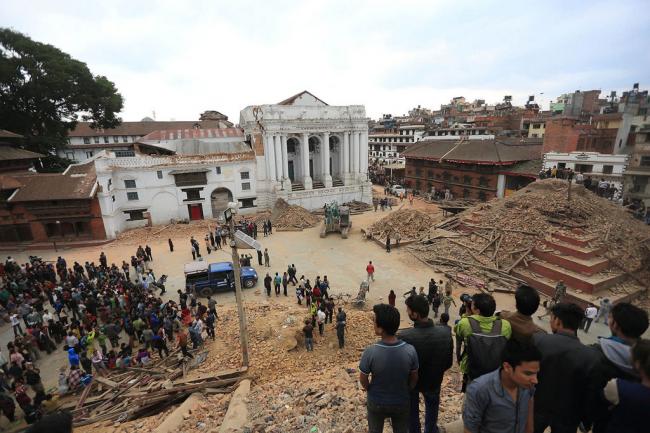
UN's rapid response humanitarian fund marks 10th anniversary with plans to upgrade
“Despite the generosity of donors, the gap between humanitarian needs and the resources available to meet them is growing every year,” he told a ceremony at UN Headquarters in New York, citing Central Emergency Response Fund (CERF) achievements over the past decade from rapid responses to earthquake quakes in Haiti and Nepal to humanitarian aid in the Syrian crisis.
“My High-Level Panel on Humanitarian Financing will soon recommend ways to transform funding so we can provide secure, adequate and predictable resources for people in crisis,” he said, adding that such financing will also be a priority at the World Humanitarian Summit in Istanbul in May next year.
“As we wait for the outcomes of these processes, the CERF remains well-placed to help address some of the key challenges that have already been identified, including the call for greater collaboration between aid agencies,” he added, stressing that financial needs are now five times greater than a decade ago.
He noted that every year, CERF has enabled humanitarian partners to provide critical health services to more than 20 million people, helped feed 10 million, provide water and sanitation to eight million, and bring emergency shelter to more than one million people.
“And it has helped make us faster. Within 11 hours of the earthquake in Haiti (in 2010), trucks were unloading life-saving aid. Within 48 hours of Nepal's recent earthquake, people were receiving timely life-saving assistance,” Ban said. “Since 2011, the CERF has allocated more than $200 million to humanitarian efforts in Syria and neighbouring countries.”
The General Assembly set up CERF on 15 December 2005, to bring immediate relief in natural and man-made disasters and save thousands of lives that would otherwise be lost to delay.
At the time officials noted that it took four months between the time when access restrictions were lifted in Sudan's strife-torn Darfur region and funds were committed to the relief appeal. In that time, the number of internally displaced persons (IDPs) steadily climbed to 1.6 million and mortality rates rose above emergency levels.
When locust swarms infested Africa's Sahel region in 2004, early funding would have mitigated the effects at far less cost. In February that year, the UN Food and Agriculture Organization (FAO) appealed for $9 million to spray locust larvae to prevent their spread, but it was under-funded. That summer, the locusts multiplied and FAO had to raise the appeal to $100 million.
“This (CERF) was a breakthrough in providing fast and predictable funding for early action at times of global crisis,” Ban said today. “Over the past decade, the Fund has been an essential component of our humanitarian response – and it has enhanced the credibility of the United Nations. Among the CERF's key strengths is its flexibility and speed.”
Photo: Laxmi Prasad Ngakhusi/UNDP Nepal
Support Our Journalism
We cannot do without you.. your contribution supports unbiased journalism
IBNS is not driven by any ism- not wokeism, not racism, not skewed secularism, not hyper right-wing or left liberal ideals, nor by any hardline religious beliefs or hyper nationalism. We want to serve you good old objective news, as they are. We do not judge or preach. We let people decide for themselves. We only try to present factual and well-sourced news.







